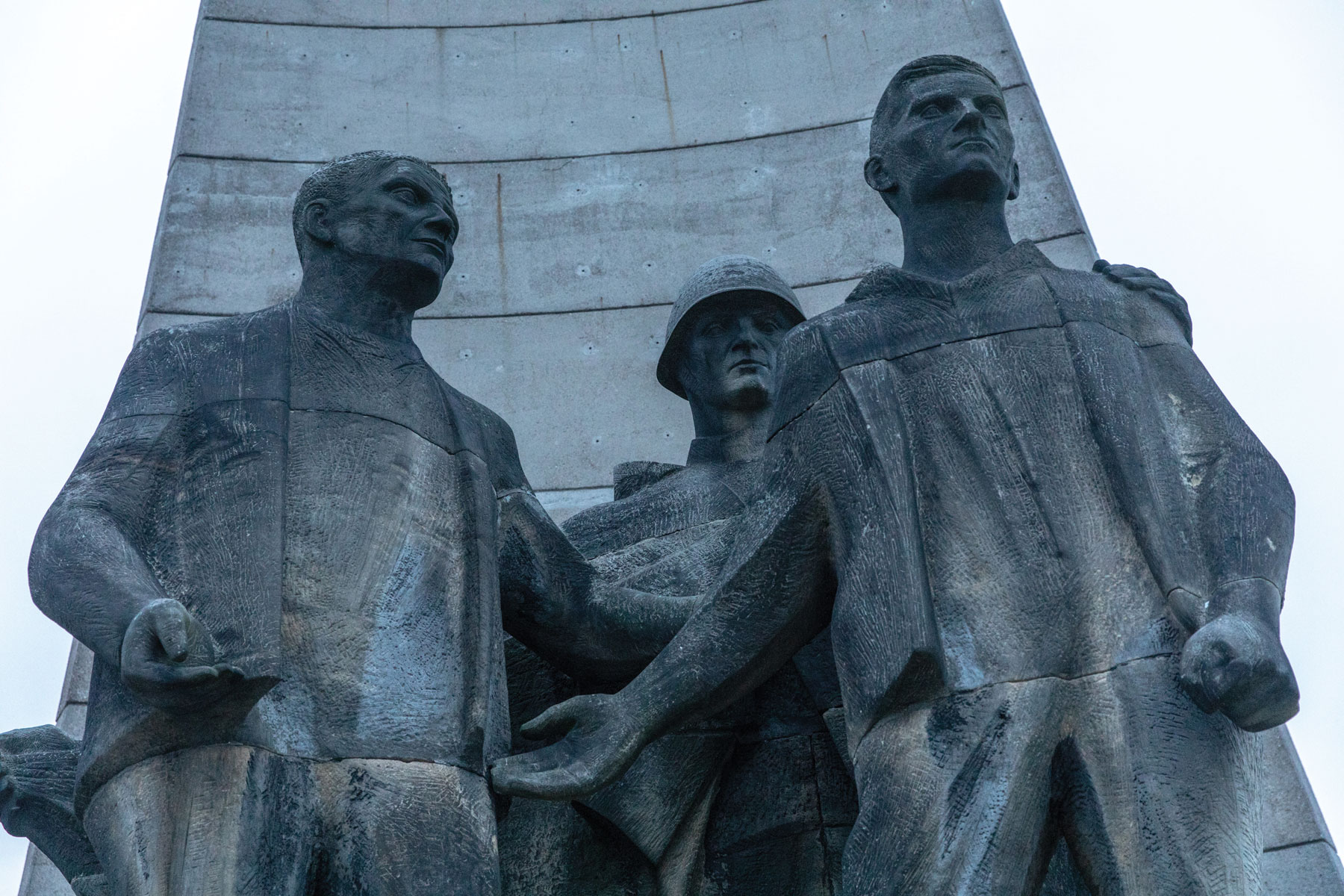
Israeli Jews — like the majority of American Jews — say that remembering the Holocaust is essential to their Jewish identity (73% in the U.S.; 65% in Israel). Those surveyed also say that “to be a good Jew” one must remember the Holocaust (87% agree and strongly agree).
This week, Israelis were fed a large dose of remembrance as foreign leaders, including Vice President Mike Pence, the presidents of Russia and France, Britain’s Prince Charles and others flocked to the country for the fifth World Holocaust Forum (WHF), marking the 75th anniversary of the liberation of Auschwitz.
It is a strange occasion, part political event, part commemoration, a mega international event worthy of a pause. A right-wing Israeli government hosted a large number of foreign dignitaries, not because it agreed to pull out of occupied territories, not because of a breakthrough in peace negotiations, not to honor the death of a great leader of the left.
When the opposition alleges that Israeli Prime Minister Benjamin Netanyahu ruined Israel’s standing in the world, dozens of convoys making their way from Ben Gurion Airport to Jerusalem will suggest otherwise. And if you think this is a publicity stunt — finding an excuse to have an international summit to lobby for Netanyahu’s reelection — I’d remind you that events such as the Sharm El Sheikh Summit of 1996 were similarly staged, in that case to support the reelection of Shimon Peres (he ended up losing to Netanyahu).
For Israel, the Holocaust is a living memory, a unifying symbol, a political tool and, most of all, a constant reminder of Jewish fragility and Israel’s need for robustness. On Jan. 20, when foreign leaders began their long journey to the Middle East, Israel’s finance minister decided to add 2 billion NIS (New Israel Shekel; about $580 million) to the defense budget. The Israel Defense Forces (IDF) must purchase more rockets amid growing threats and, budgetary hurdles aside (Israel has no coalition that can pass a budget for over a year, and the deficit is growing), such urgent needs must be met.
Israel is internationally recognized as the body that carries on the legacy of the perished communities and individuals.
In the minds of Israelis, these two events — budget increase and Holocaust commemoration — clearly are connected. There’s no need for the finance minister to mince the words, no need for the press release to mention a link. Remembrance ceremonies are not about the past as much as they are about the present.
Netanyahu said before the summit that he would speak to visiting dignitaries about Iran. The past will serve as background to this pressing discussion. And of course, if this were up to other Jewish leaders — not the leaders of Israel but the leaders of non-Israeli communities of Jews — the agenda of the WHF might have been slightly different. These leaders might have emphasized anti-Semitism in France and Britain more than the threat of Iran. They might have conveyed their strong disapproval of President Donald Trump’s administration’s immigration policy (and also urged a return to former President Barack Obama’s agreement with Iran, rather than policies that could lead to confrontation).
What this summit proves from the perspective of the Jewish people, apart from the fact that Israel is hardly isolated, is that Israel stands uncontested at the center of the Jewish world. Auschwitz is far away, Europe is far away, the Holocaust was taking place when the Jewish state did not yet exist. And yet, when the time came to have an international commemoration of the liberation of a Nazi concentration camp that was on Polish soil by Soviet troops, the ceremony took place in Israel. Israel is internationally recognized as the body that carries on the legacy of the perished communities and individuals.
This isn’t a trivial matter. It burdens Israel with a task it must handle with care and consideration, as the Holocaust is a central feature in the identity of all Jews, including those who didn’t choose Israel as their home or as their representative. It burdens Israel with the need to consider the fact that the Holocaust conveys different and, at times, contradictory lessons to different communities of Jews. In the international psyche, Israel is already the representative of the welfare and the legacy of all Jews. But such recognition must come with the burden of having to earn, as much as is realistically possible, the confidence of all Jews.























 More news and opinions than at a Shabbat dinner, right in your inbox.
More news and opinions than at a Shabbat dinner, right in your inbox.